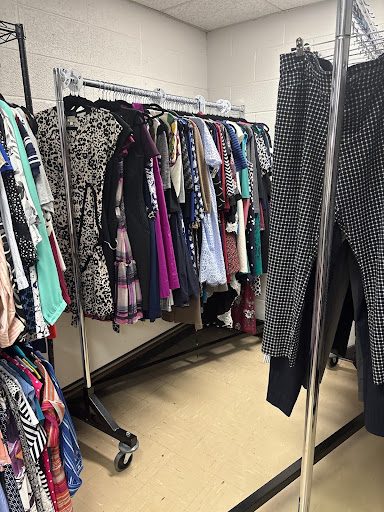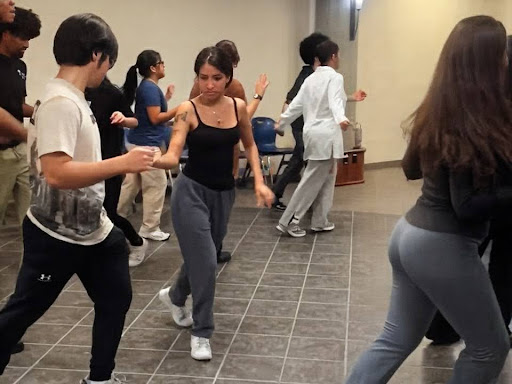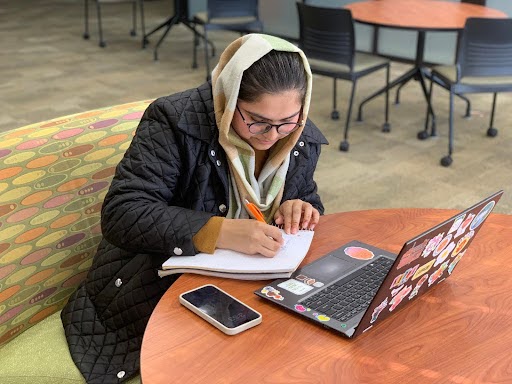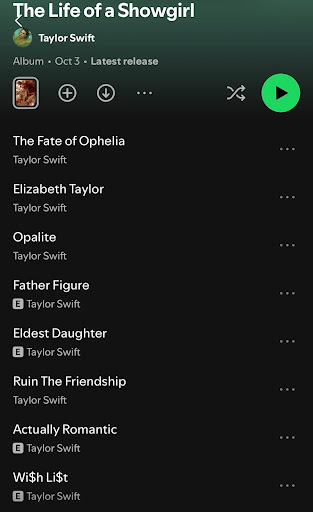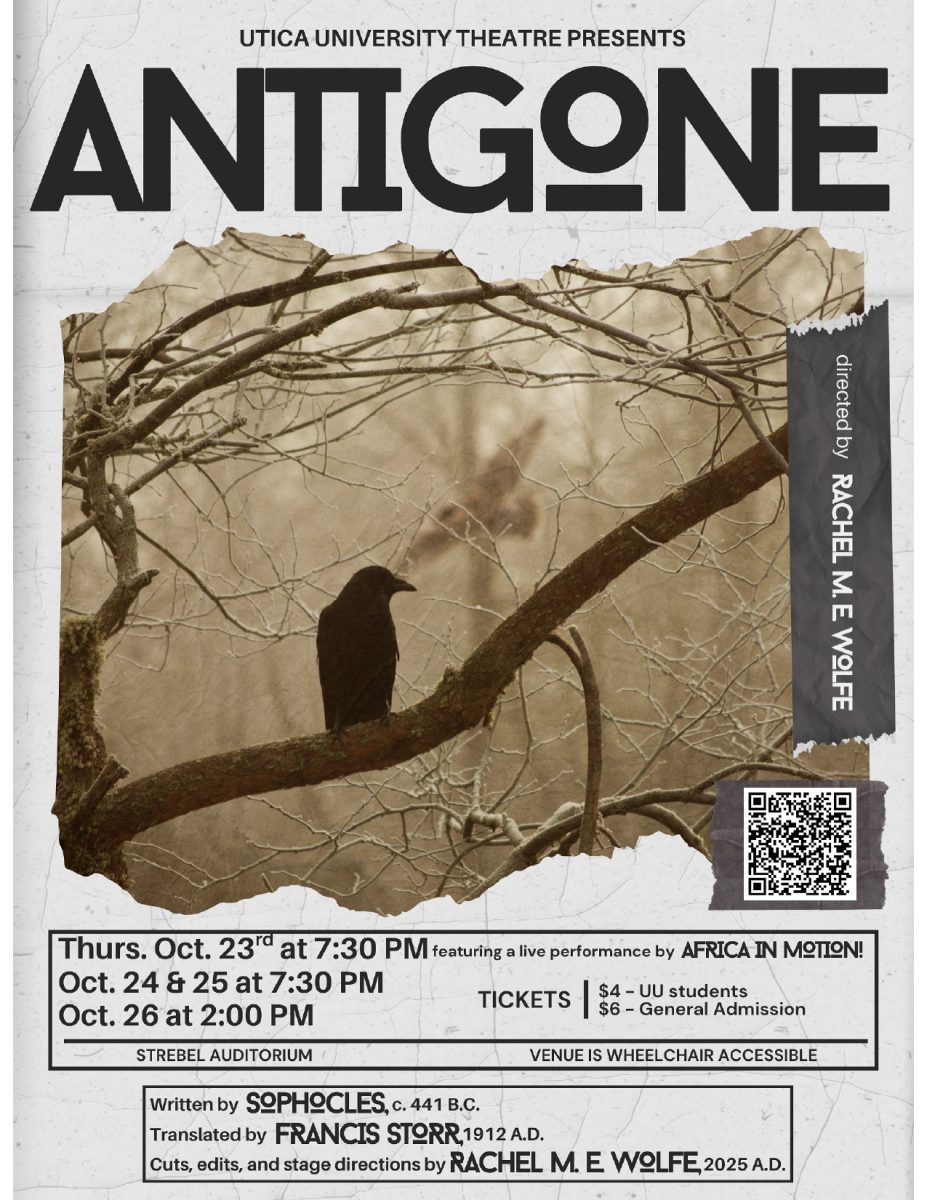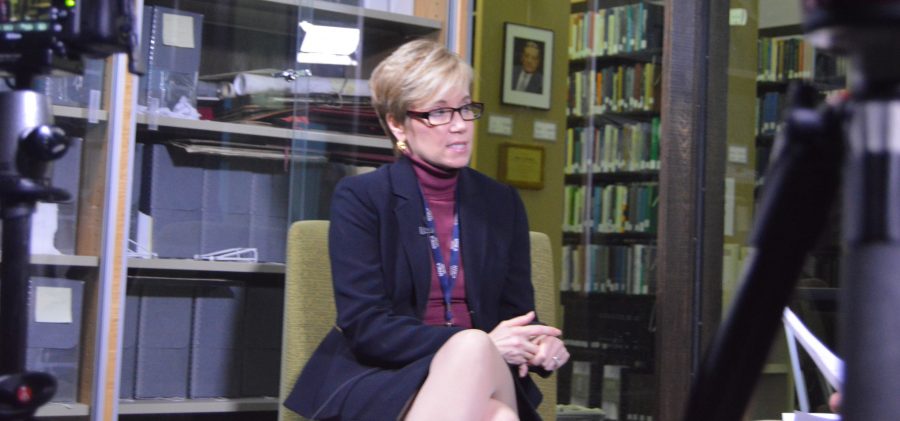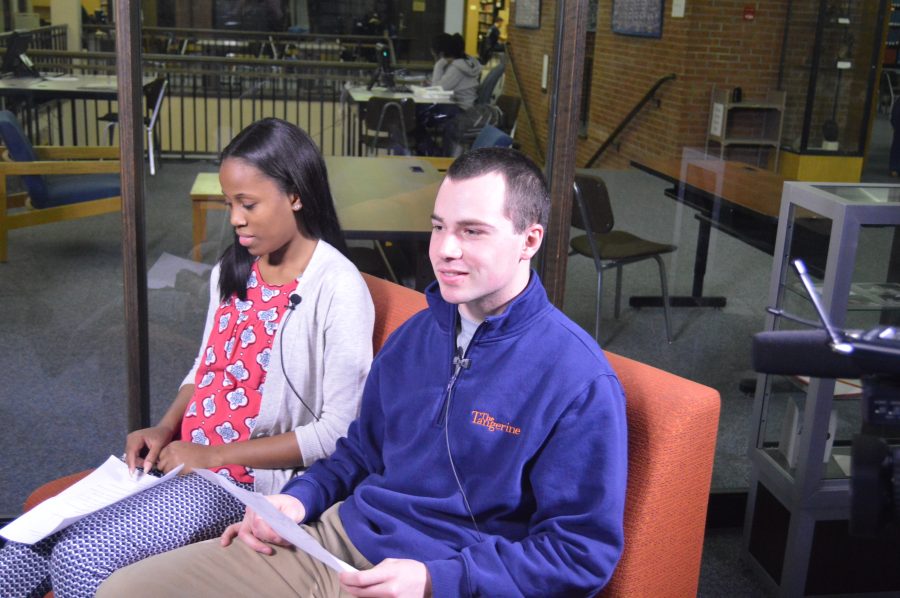The Tangerine’s co-editors-in-chief, Matt Rogers and Rashida Patrick, sat down with Laura Casamento for her first official interview as president of Utica College.
The Tangerine: What was your reaction when you found out you were named president?
Laura Casamento: I was really happy. That moment when you get the call and they say, “We’d like to offer you to become the ninth president in the history of Utica College,” and you just stop for a minute, and say “Wow.” And you think about what that means, not just for you, but your family, and the campus and the greater community. It was just, it was a really terrific moment for me.
Tangerine: Talk about how it feels to be the first female president?
LC: It feels great. One of the things I like to do and I like to be is a role model for other women. And to try to have them reach as high as they can and to not let obstacles that always kind of get in the way, to not let them get in the way. I had a conversation with someone earlier today, and I said, “No matter how you might feel discouraged inside, know that courage and guts and determination, all of that really does play a role.” I’m kind of proof here that if you set your sights on something, that you can get there. And this is obviously the first time I’ve been a college president, but when I was named a bank president, I was also the first female bank president, and not only at that bank, but in the community, and one of the few in the state. It’s wonderful to be groundbreaking in that respect, and we’re also an institution that has been transforming the lives of men and women for the last 70 years, so I think having a female college president is a great thing.
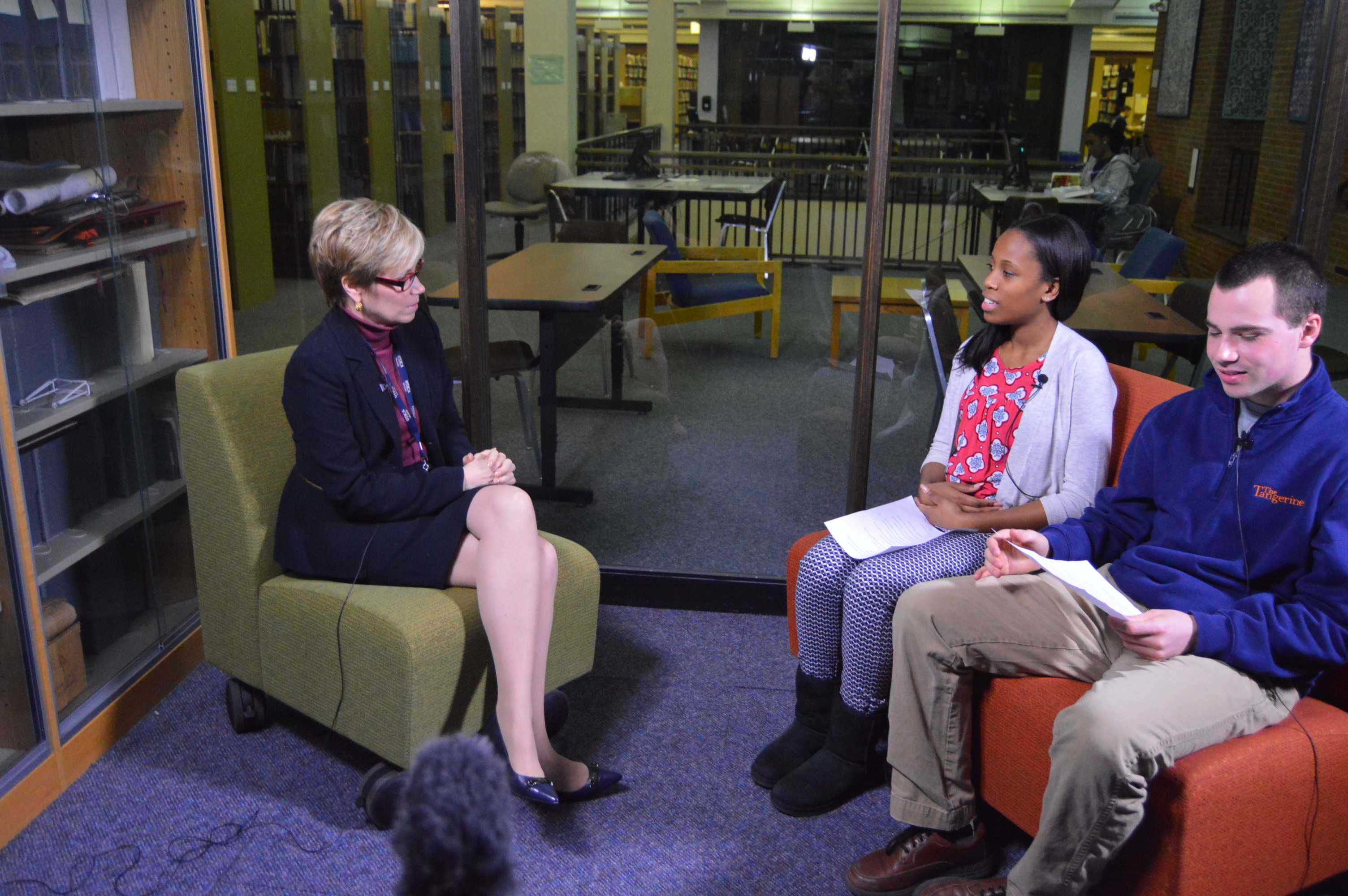
Tangerine: Why is it that you wanted to take that step to become president of Utica College?
LC: I believe in the mission and vision and the values and where we’re going. We’re on these paths of success that I’ve played a significant role in, and I wanted to make sure that that continued. And I’m also a lifelong resident of the Mohawk Valley. I know what this institution means to all of us, to the students, and the faculty and the staff, but to everyone around us, to the city of Utica, to the county of Oneida, to the greater Mohawk Valley region, and now to our constituents in Syracuse and in St. Petersburg. The Utica College family is really growing so I wanted to make sure that it continued. One of the ways I knew I could help ensure it continued was to apply for the position and give it my best shot.
Tangerine: What is the first thing you plan to do as president?
LC: I’d really like to start a strategic planning process. But before we do that, I’d like to do a little bit of a listening tour. I’m fortunate, because I’m here, that I can start some of that work before August 1st. But I think it’s really important for me to look at this campus and look at the Utica College community with a different set of eyes. Kind of with a new set of eyes. And to talk to students and to talk to staff and to talk to faculty about the things that they’re working on, the things that keep them up at night, the things that they dream about. And those are not opportunities that I have had in my current role. So I’m really looking forward to getting to know people here on a more personal and professional level.
Tangerine: What would you say is a major priority of yours?
LC: I would say two things. Continued work on affordability, because affordability for students means a lot to me. And it means a lot to me because I paid for my own college education. So that means a great deal to me. And making sure students leave here without enormous burden in terms of student loan debts. That’s number one. And number two is that I want to make sure that students who start here, that a majority of them finish here. You’re going to hear me talk a lot about affordability and about completion. So today, we have about 42-44 percent of our students after six years finish, they graduate. I’d love that number to be 60. And I’d like it to be 60 sooner rather than later. Now we don’t want to sacrifice quality in order to do that, but I believe there are steps that we can take to make sure that more students that start at Utica College graduate from Utica College.
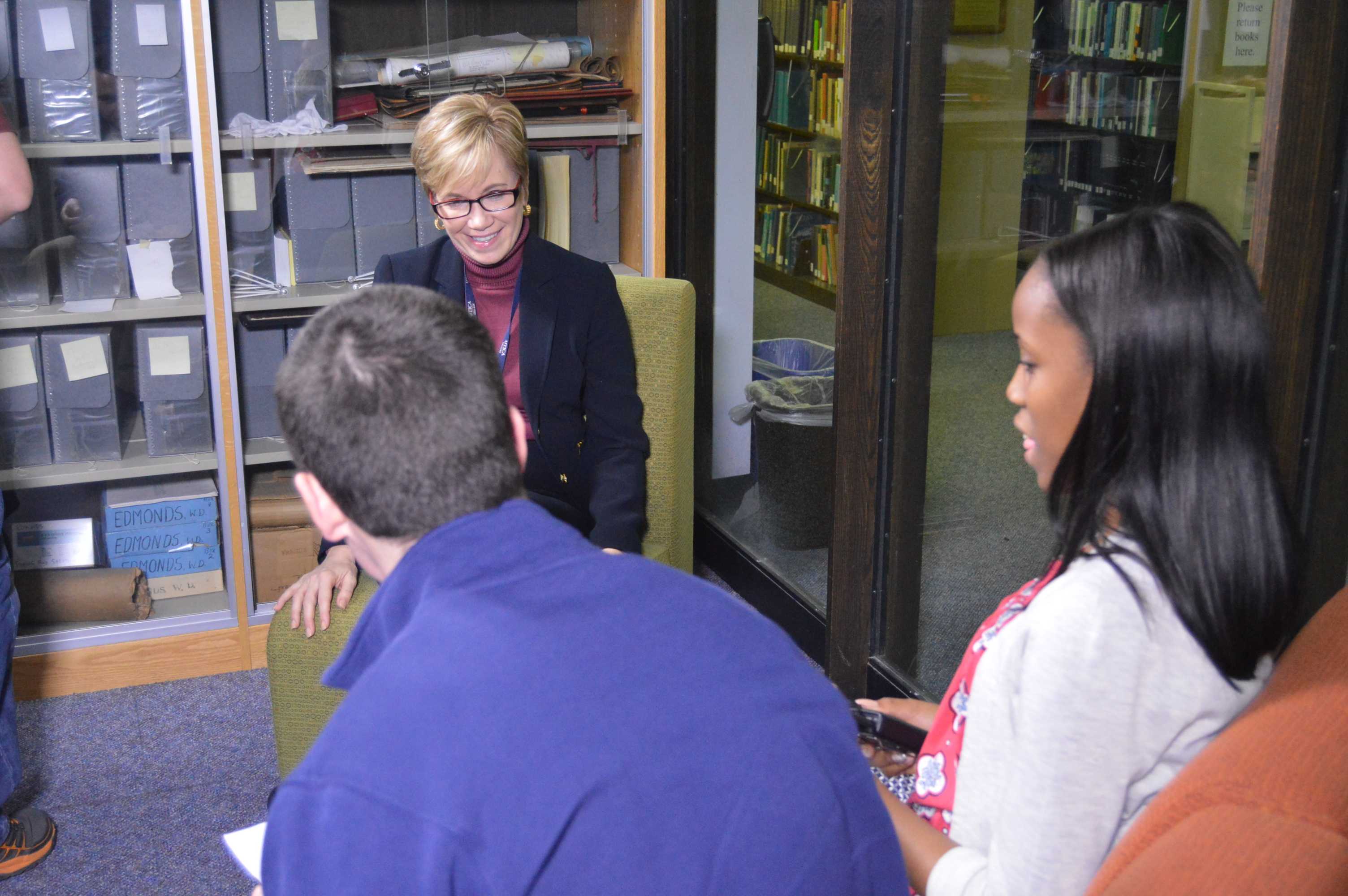
Tangerine: Talk about your trajectory at Utica College.
LC: So I started here in 2004 as the vice president of institutional advancement, which is now just advancement. And I was responsible there overall for marketing/communications, development and alumni and parent relations. And I was already deeply embedded in the community. Not the Utica College community, but the greater community when I started that role. So I knew our elected officials, I knew the businesspeople in the community through my role at the bank, and I knew a lot of people who were donors to the institution. So the learning curve that most people have when they come from the outside, I didn’t have. And I had a financial background that helped. So when we would be sitting around the president’s cabinet table and we would be talking about the financial challenges that we had, I would jump in and try to help and try to provide advice and try to provide ideas for more structure and things that we could do to build our financial capacity. And I believe that I was able to prove to President Hutton and to others that my leadership style would work well in expanding and working on other divisions, so in 2009, he gave me a promotion to then senior vice president in charge of now enrollment, management and financial affairs, along with advancement. And I worked really hard to re-engineer those divisions pretty successfully. So that’s how I rose and that’s when I realized that the presidency would be something that I would be interested in.
Tangerine: Why do you think you were chosen over the other candidates?
LC: I wasn’t in the room, so I don’t know for sure (laughter). But I believe that the relationships that I have, that I have already established here, locally. There would be no learning curve for me in that regard. And I believe the relationships that I have established in the campus community with people who work for me and with me know what kind of leadership style I have. And I believe ultimately the board felt that that would be beneficial to have in the president.
Tangerine: How are you going to make sure Utica College doesn’t get complacent and lives by its motto of “Never Stand Still?”
LC: Well we have three curricular paths right now in terms of our academic program. We have online and blended programs. We have accelerated nursing, and we have the ground campus. And as far as I’m concerned, we are not going to take a break from growing in those areas. I do think though we need a period of time of really taking a look and studying where we’re going, what we’re doing, and do some strategic planning. I think that’s really important to take us from where we are now to the next step. But I have no plans to stand still. We might stop running once in a while, but to stand still would be the worst thing we could do. But we have a lot going on at the college. We have a lot of people working really hard to do some pretty amazing things. I want to make sure they continue to have the energy they need to see those things through to fruition.
Tangerine: What does Utica College mean to you?
LC: Oh, you’re going to make me cry or something. Someone said to me, you know, are you going to get all emotional like President Hutton does when he’s at events and things, and to be honest with you, I probably will. Utica College means so much to me. It’s transformed my own children. My two kids were graduates here, one in 2010 and one in 2013. I’ve seen what the college has done for them. My step-daughter was a graduate of our first class of the transitional doctorate of physical therapy. So she’s the first doctor in the family. I’ll be the second doctor in the family. And my nephew just graduated last year from the OT program, with a masters in OT. So I know firsthand what our incredible faculty do in the classroom, because I’ve seen it with my own kids. And so the transforming of lives, what we do with the students, the way we care about students, I mean, education is one of the most powerful things in the world and we do a great job with it. I love this place, and that’s why I did it.
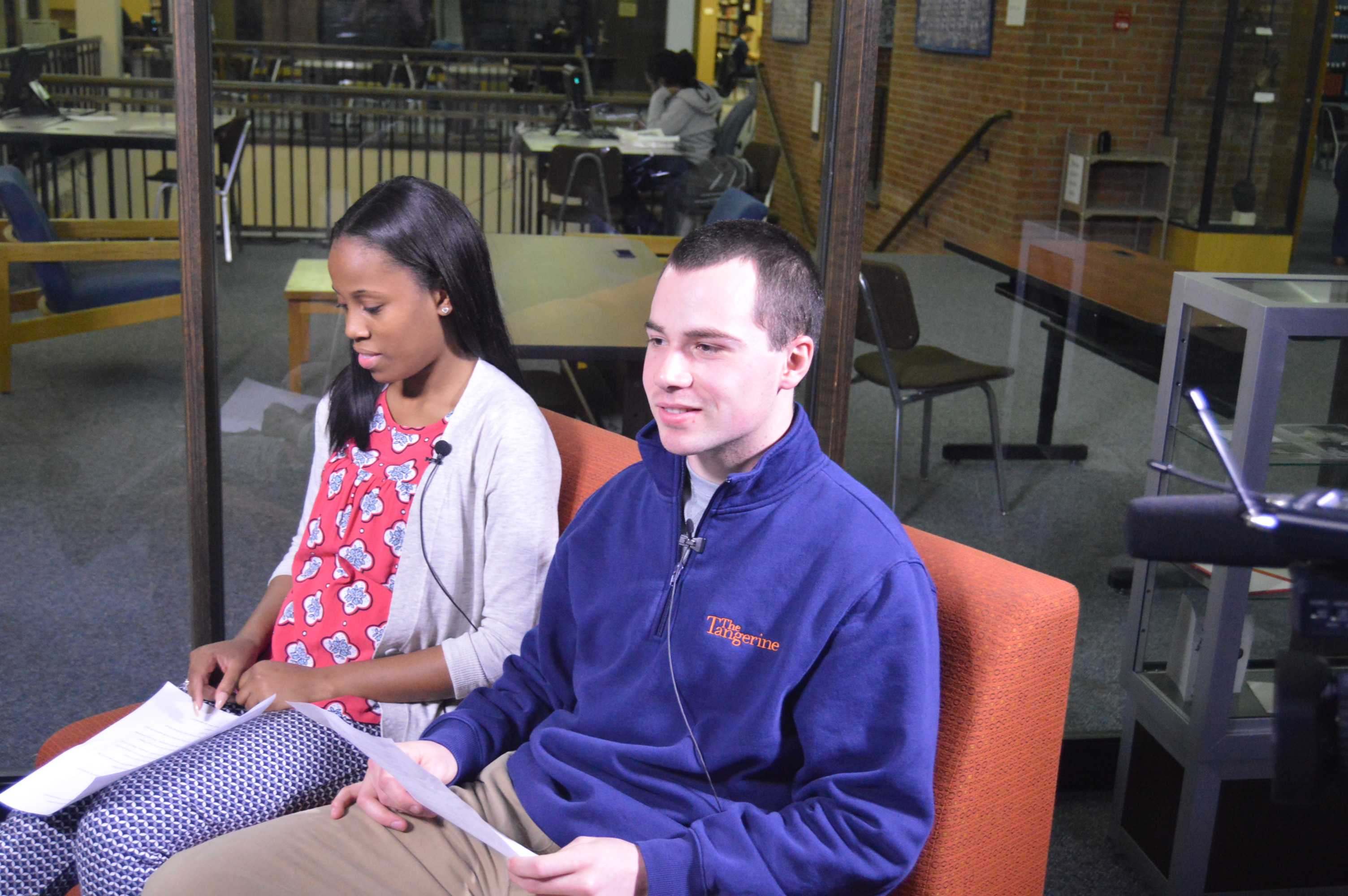
Tangerine: How do you plan to use your local roots to make the college better?
LC: What I can begin to do is start on day one, talking about the relationships that Utica College has in the community and try to make connections with the workforce development needs and making sure that faculty are aware of what’s happening in terms of the local business community, and bringing the faculty expertise into the local businesses and vice versa, bring students some real-world experience from the business community. So those are the things that I can do right away. And I want to make sure that when we’re doing planning as a region, that Utica College is really top of mind with people who are planning the future of the Mohawk Valley region. It is now, and I want to make sure that it continues to be.
Tangerine: How does it help you in your transition to president that you have been a part of UC for so long?
LC: Again it goes back to learning curve. So, for instance we were talking about this today with the joint cabinets, the Provost’s cabinet and the President’s cabinet. If there was a candidate that had been selected from the outside, everyone would be preparing these very large briefing packets and someone would have to really study and really be brought up to speed on the issues that we’re facing. Not only the issues we’re facing, but the opportunities in front of us. So that is something that I will not have to do. Again, that doesn’t mean that I don’t have to listen and to really take an in-depth look at what’s happening in everyone’s area to make sure that I am familiar with everything that’s happening here because I might not be, and I can’t take that for granted, and I won’t take that for granted.
Tangerine: Is there anything that you’re eager to change when you become president?
LC: That’s a great question. Because I was asked that today at the press conference. And I said to the reporters, “You can’t ask me that when President Hutton’s in the room.” (Laughter). I don’t have anything right off the top of my head that says, “I’m going to change that.” I happen to think the college is going in a very good direction. I want to bring some discipline and focus to where we’re headed, and I want to listen. I want to find out what’s going on. And then if I think there’s anything that needs to change, I’ll work with the campus community on making those changes. But I don’t want to get ahead of myself.
Tangerine: How do you think your experience as a bank president will help you as a college president?
LC: Two ways: One, I think the most obvious is the financial expertise, although finance for colleges and universities is very different than finances for a bank. But I have the financial expertise that will help a lot. And the relationships I solidified as a bank president, they’re still there today and they continue to be strengthened. So I’ll be building on top of that. It also helps me with lobbying efforts because of the connections I’ve made with all of our political representatives and elected officials, so that’s pretty much how I’ll be using that. Also, as a bank president, I had to lead strategic planning efforts. I’ll need to lead strategic planning efforts here. And one of the things I talked to you about earlier that is a big priority for me in year one is to launch a new strategic plan.
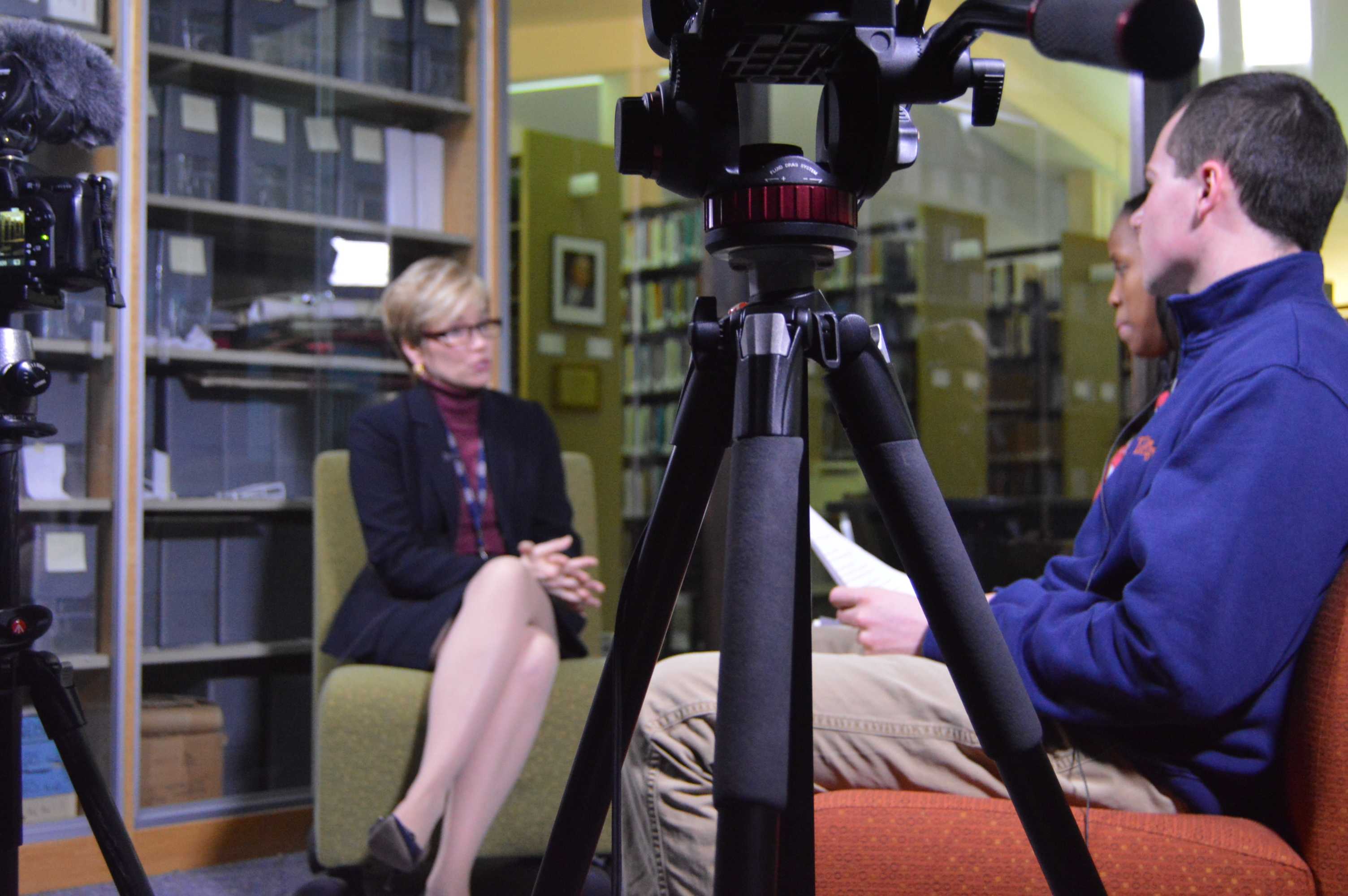
Tangerine: You’ve taken some criticism for your lack of academic experience. What do you say about that?
LC: Did I rise up through the academy? No I didn’t rise up through the academy. But I believe that just because you do not come from the academy doesn’t mean that you can’t have enormous respect for it. And I do have enormous respect for it. I have an MBA from a highly reputable, highly respected institution in Rensselaer. And I will very soon have a doctor of education from the University of Pennsylvania, which is also highly regarded and highly respected. For me, what’s important, and I did a lot of research about this, I believe my academic credentials will be on par with hundreds and hundreds of college and university presidents across the country. For me, I think what’s important is that a college president has the credentials necessary to lend credibility to the office of the president, which I will have. It’s incredibly important that a president has a provost that has impeccable scholarly credentials like we do in John Johnsen, and he is the leader of the faculty. So I don’t think that it’s an issue for me, and I don’t think that the board felt that it was an issue. And that’s one of the reasons, obviously, they selected me for the position. But I do have enormous respect for the faculty. Enormous respect.
Tangerine: How do you plan to engage with the students and faculty of Utica College?
LC: With the faculty, when I go on my listening tour, my hope is that I get to meet with each and every one of them. And find out, for instance, how I can help advance scholarship here. I mean, one of the things a president does, one of their primary responsibilities, is to fundraise in order to make sure that the strategic priorities that you develop and a plan that you can actually make them happen. Those things have to be funded. So I think I need to get out there to talk to faculty about what does scholarship mean in each of their disciplines? What are the five to ten key attributes that they can tell me about scholarship at their discipline and could we maybe fund more professorships? Could we find ways to increase faculty development? So those are the things that I need to do on the faculty end. For students, I think I really need to be visible. I think that’s important. So attending games, choir performances, play performances, dinners and events that students put on. But not just for things that are planned. I need to pop in once in a while. I need to make sure I’m having lunch in the dining hall or my husband and I come and have dinner in the dining hall every once in a while to find out what’s happening with students. I will commit after August 1st to having some office hours that I’m going to dedicate to students so that students know that there’s a block of time on my calendar every couple of weeks where they can pop in without an appointment and talk to me. So I want to be visible. I have to say, I’m not going to be lifting refrigerators when students move in (Laughter). That’s a little bit different for me. People will be very disappointed. They might have to bring President Hutton back for move-in day. But other than that, I plan to be very accessible and very visible to students.
Tangerine: President Hutton was a big supporter of the athletic program. How do you plan to continue that legacy?
LC: I happen to be a big fan of our athletic department. I love their focus on the student-athlete, with the student first. For me, and I talk about this a lot, athletics is just one of those places where we have a wonderful opportunity for bi-directional learning, where they have relationships with their coaches, they have relationships with each other, learning respect and discipline and honoring the uniform that they’re wearing. I think that’s terrific for the men and women here who are on our athletic teams. We have over 600 student-athletes. They are creating a vibrancy to campus life that we otherwise wouldn’t have. So again, I’m a big fan, not only because of what it does for campus life and the community, but it’s a huge financial benefit to the college. You’ve got 600 student-athletes and every year you bring in a freshman class and 25 percent of them are student-athletes. So it’s important on many many levels and I have tremendous respect for our athletic director and our coaches and the work that they do every day.
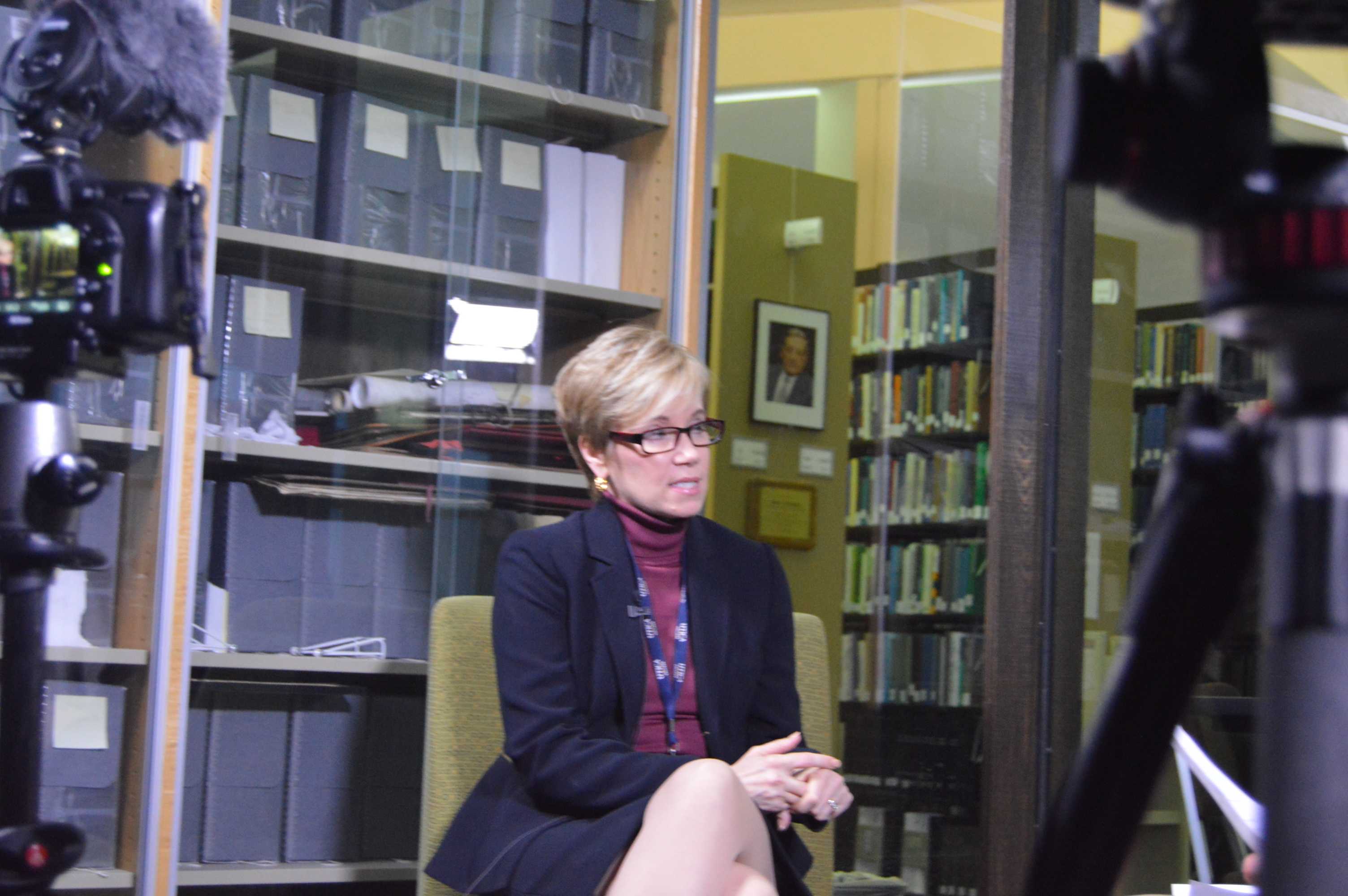
Tangerine: How do you plan to prepare yourself for being president over the course of the next six months?
LC: Again, I’m going to work with the board. The board is going to set up a transition team. I don’t know exactly what that transition team is going to look like yet, but it could have representation from across the campus. So for instance, it could be made up of, and I believe it will be made up of some faculty, some staff, maybe students that are really going to help me create a five-month plan and help me prioritize where I need to be and what I need to focus on. I think that will be really helpful, so that by August 1st, I can hit the ground running.
Tangerine: What have you learned over the years working under President Hutton?
LC: Never stand still. I have enormous respect for President Hutton and what he’s done here. And one of the things that I have learned from him is that you can work hard and you can enjoy the rewards of that work, but you can always have fun. I know you’ve seen it with him. You expect something serious to come out of his mouth, or you expect a real serious moment, and he’s able to put people at ease and really make them feel like he cares about them personally. And to take the time to do that and develop relationships on a personal level as well as on a business level. And to take chances. If he was the type of leader who never took chances, we just wouldn’t be where we are today. So those are some of the lessons I’ve learned from him.
Tangerine: How will this change your everyday life?
LC: I’ll be a little busier. I’m not sure that I could be that much busier than the job I have today and the doctoral program at Penn. So, I’m glad that the doctoral program at Penn will be over before I start this job. But it’s going to be a different kind of life. Because I can really be out front and center, where in the position I have now, I do a lot of things behind the scenes. So I don’t have the opportunities to spend with students and to talk to faculty and to find out what they’re working on and to just be out in general and talking to staff and being front and center. I don’t have those opportunities so I think that’s going to be one of the biggest differences for me.
Tangerine: How long do you plan on being president?
LC: We have a capital campaign that we need to do, so if that capital campaign started in, say, two years or three years, it’ll take seven years to finish a capital campaign. So I’m committed to seeing us through a capital campaign. So I’m going to say I’m going to be around eight to ten years.
Tangerine: What are you most looking forward to about the opportunity?
LC: One of the things I’m really looking forward to about this opportunity is to unite this campus around efforts to increase retention and completion with our students and to work with the faculty to invest in the things that are really important to us. And just to make my own stamp, my own difference. I can’t wait. I can’t wait to get started.
To read more about Casamento being announced as Utica College’s next president, click here.


